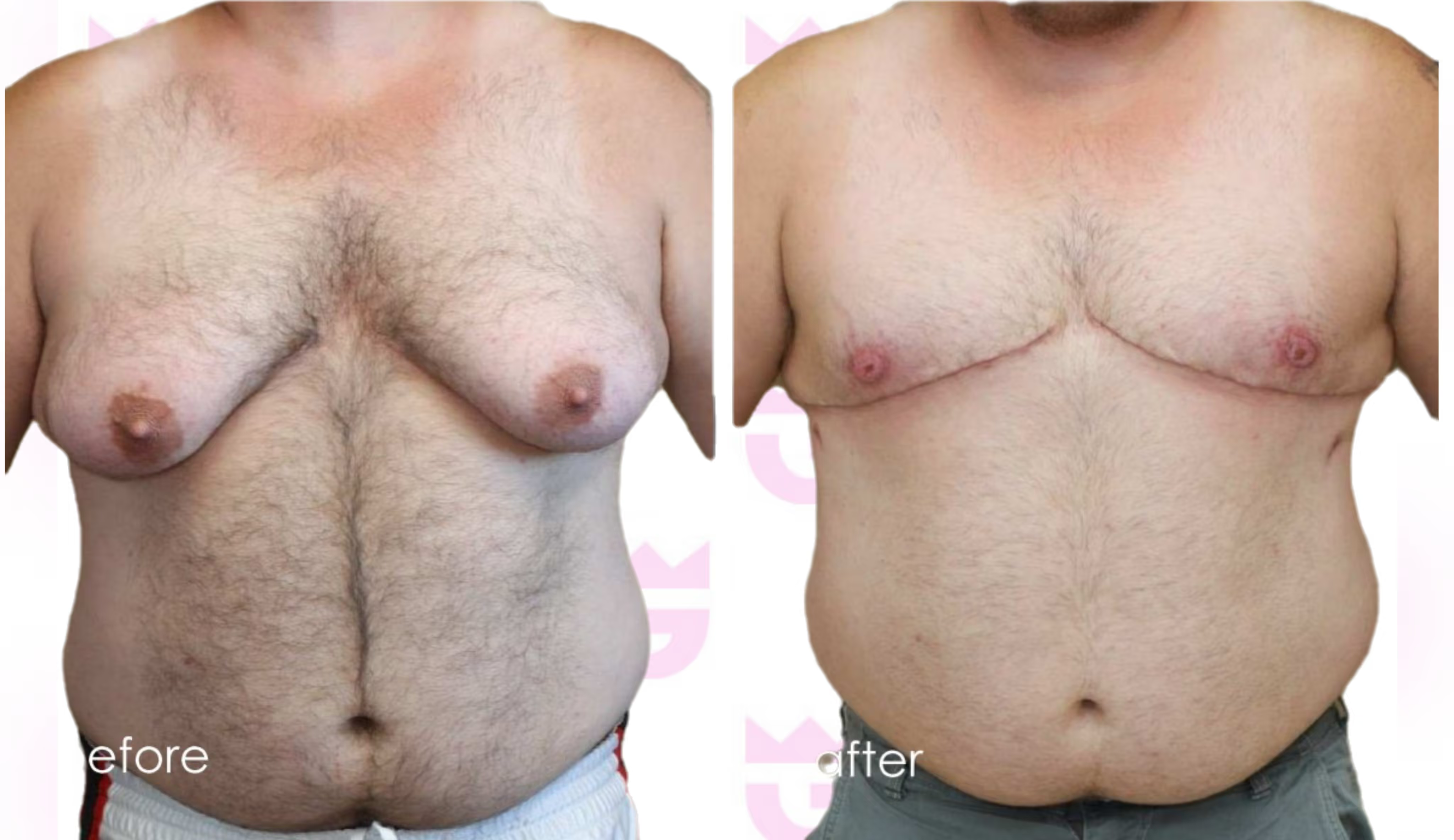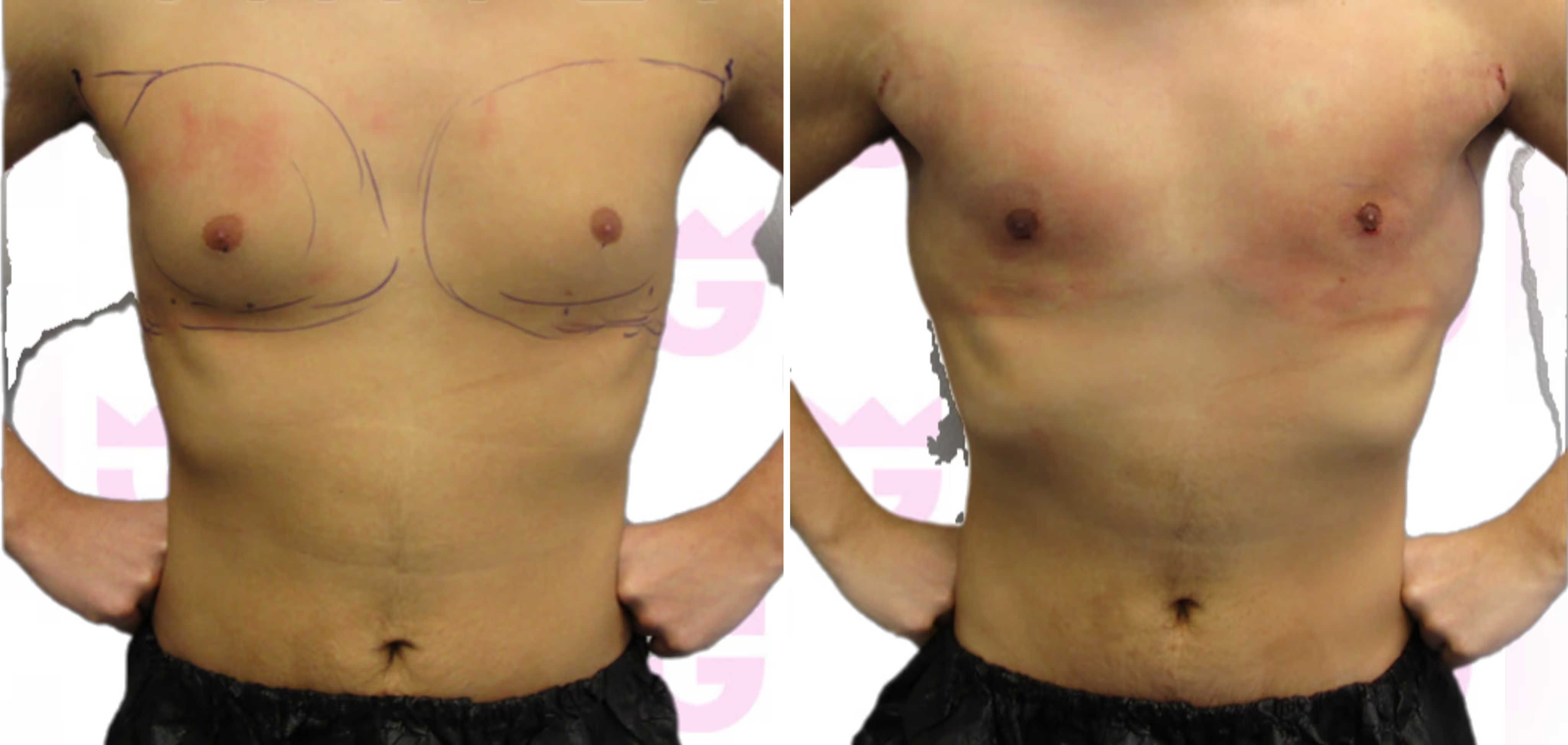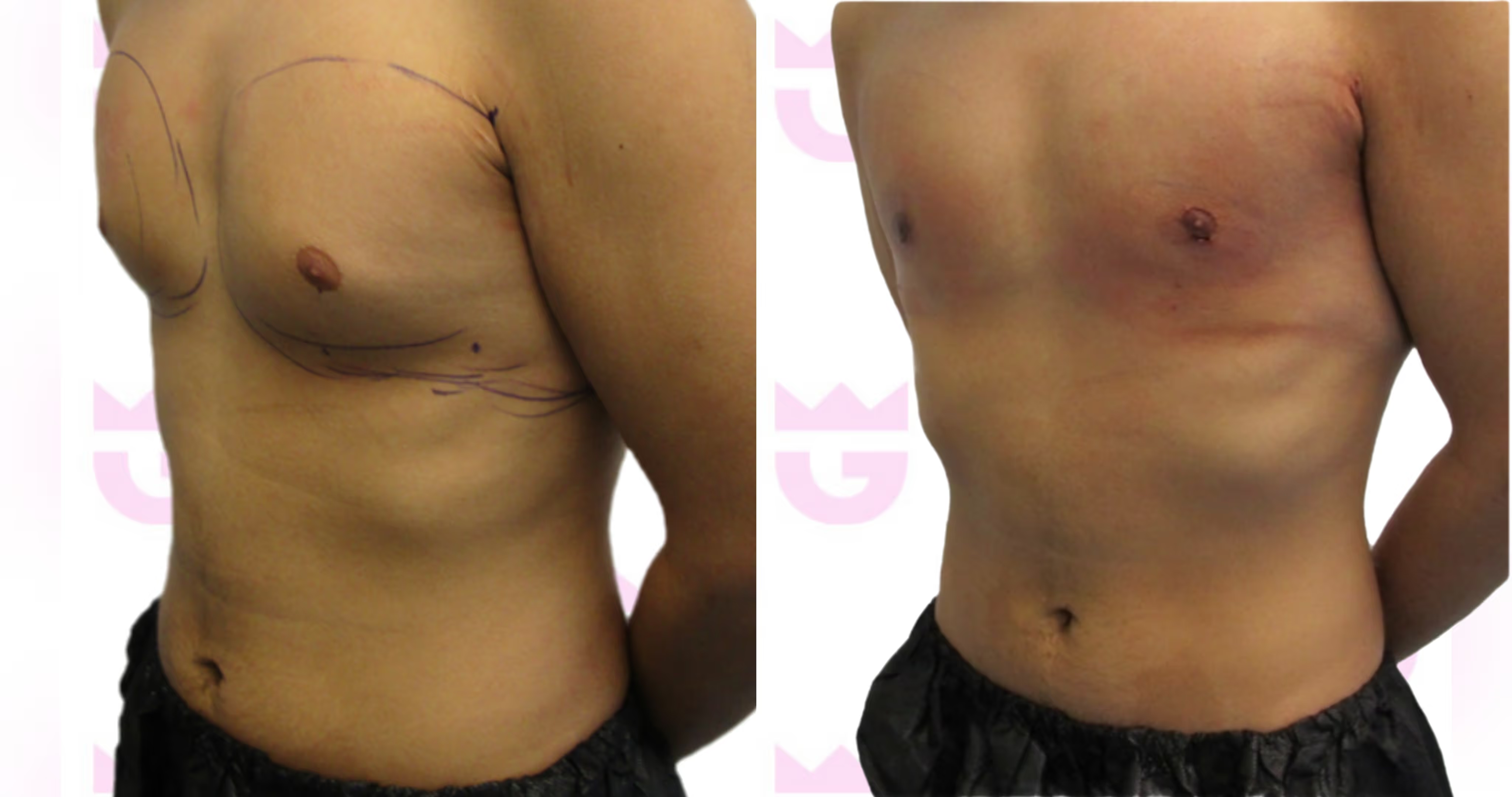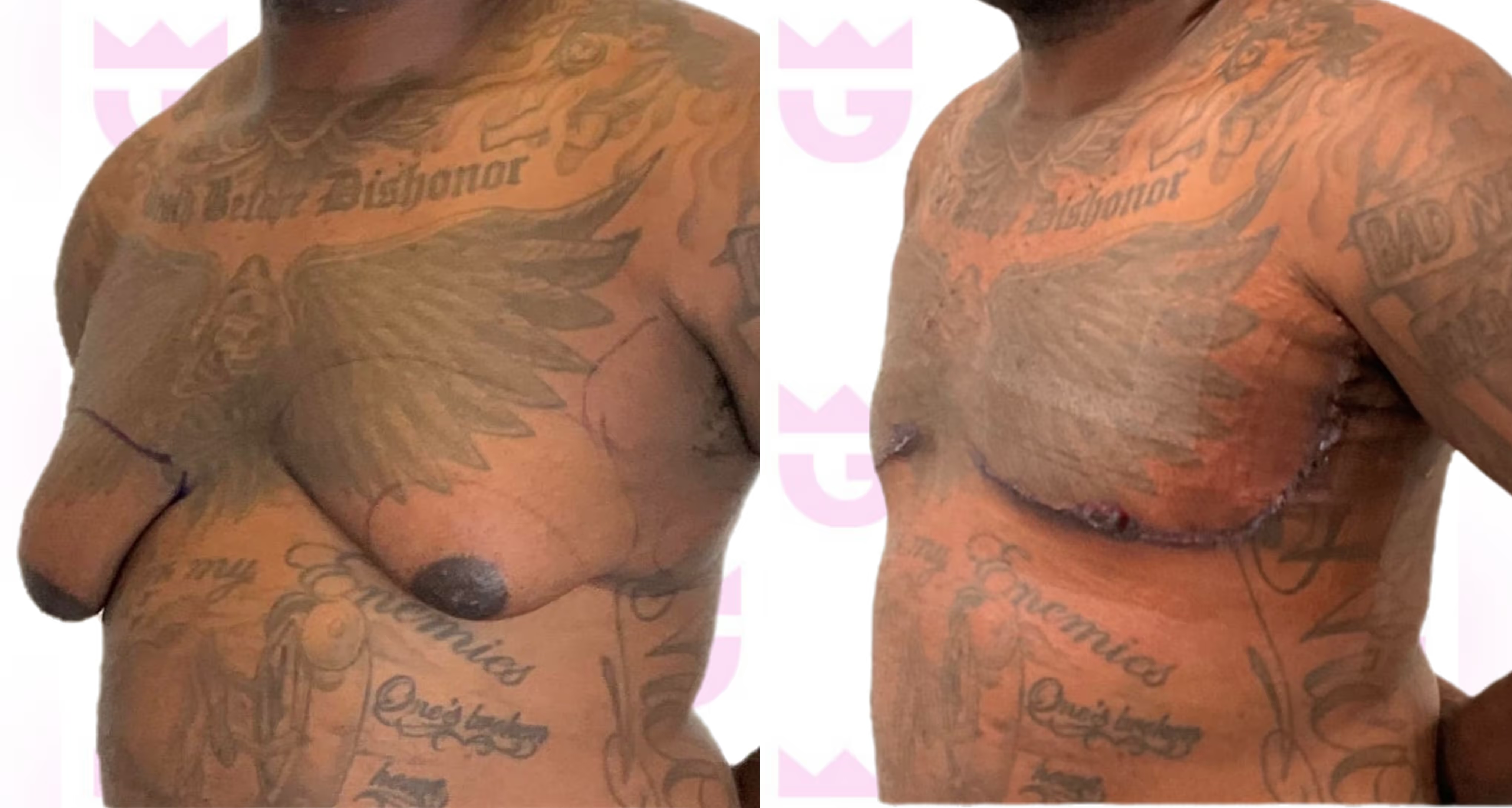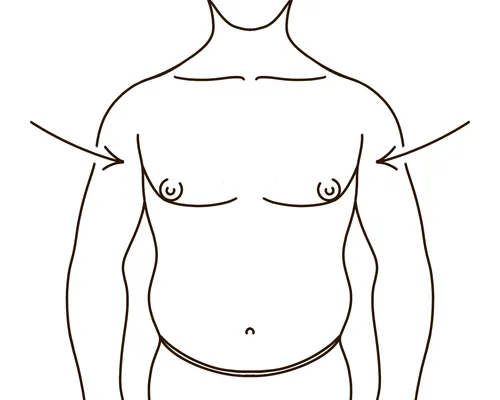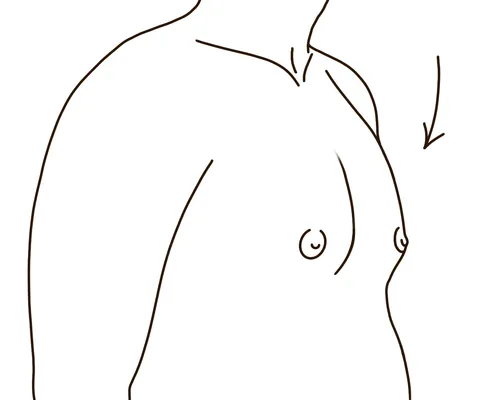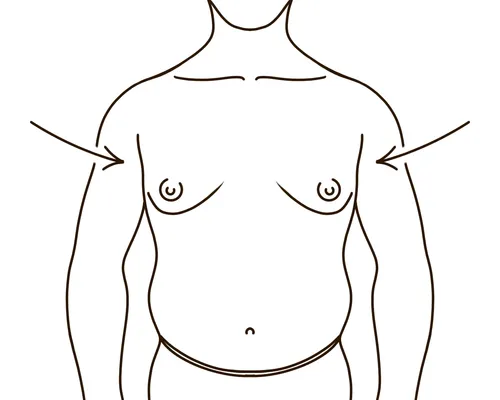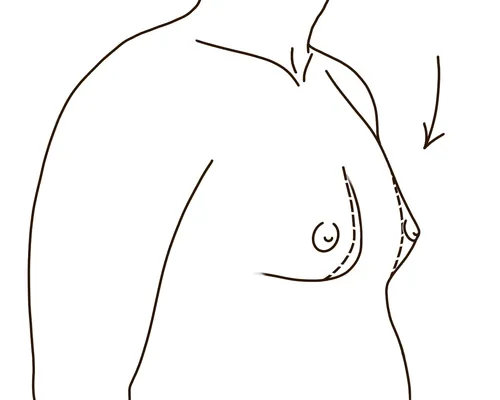Gynecomastia is the enlargement of breast tissue in men, often caused by hormonal imbalances involving estrogen and testosterone. It can affect one or both breasts and may lead to physical discomfort and emotional distress. Gynecomastia may develop during puberty or due to hormonal changes, medication use, or underlying health conditions such as prostate cancer.
Gynecomastia surgery typically involves liposuction to remove excess fatty tissue and surgical excision to remove glandular breast tissue. Incisions are made discreetly around the nipple area to minimize visible scarring. The procedure can be performed under local anesthesia (Awake Gynecomastia Surgery) or general anesthesia. Dr. Gruber will determine the best approach based on the severity of gynecomastia and the patient's preferences.
Yes, Dr. Meegan Gruber can perform awake gynecomastia surgery using local anesthesia without sedation, allowing you to remain awake but comfortable throughout the procedure. This option is ideal for many patients who prefer a less invasive approach and quicker recovery.
Recovery time varies, but most patients can return to normal activities within a few days to a week. Swelling and bruising may persist for a few weeks, and wearing a compression garment can help minimize swelling and support the healing process. It is important to follow post-operative care instructions to ensure optimal results and prevent complications.
Gynecomastia surgery may be suitable if you are experiencing enlarged male breasts that cause physical discomfort or emotional distress. A consultation with Dr. Gruber will help determine if you are a good candidate for this cosmetic surgery procedure and the best approach for your specific needs. Men with gynecomastia who have tried non-surgical treatments without success often find surgical removal to be the most effective solution.
Hormonal changes during puberty, use of certain medications, underlying health conditions such as prostate cancer, and imbalance between estrogen levels and androgen may develop gynecomastia. It is essential to identify the underlying cause to determine the appropriate treatment. Hormonal changes during puberty, treatment for prostate cancer, and conditions like hypogonadism or hyperthyroidism can also lead to gynecomastia.


